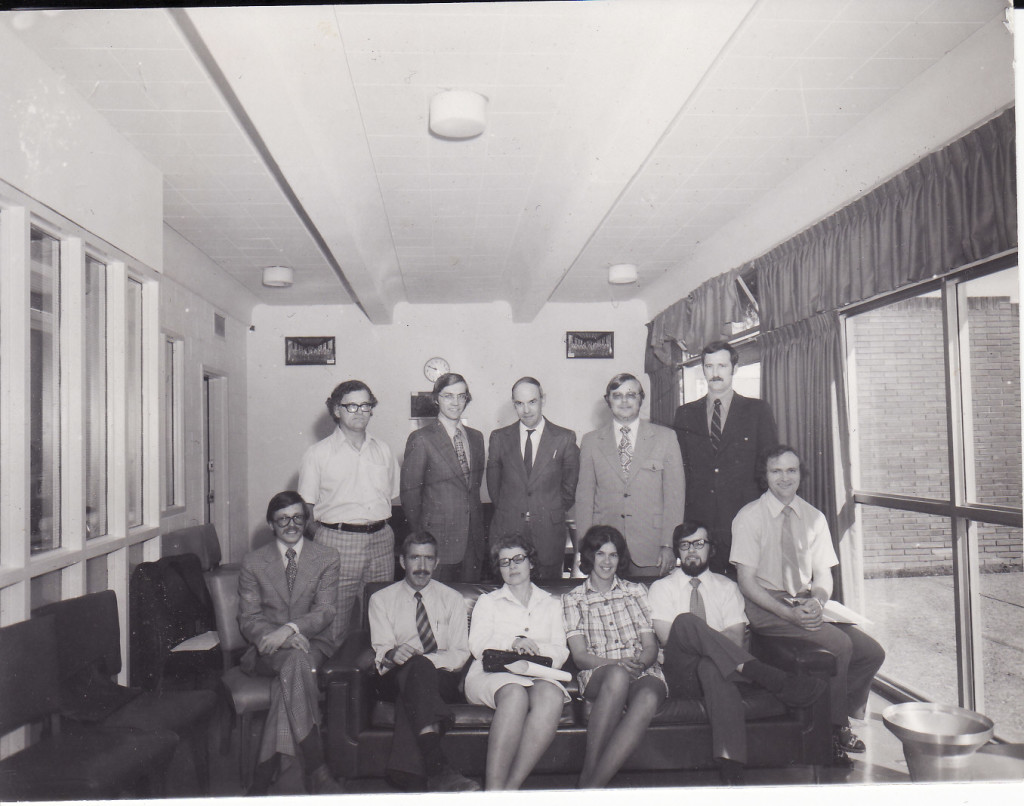In my volunteer role with M2 I had frequent meetings with inmates and also staff at Matsqui Institution. Very likely someone in a high position noticed that I was there on a fairly regular basis and decided I should be invited to join the Citizens Advisory Committee.
These committees were being developed in Canada’s federal prisons at that time, in response to public concerns about prison policies. Certainly the Temporary Absence Program was a concern in the Fraser Valley.
At the first meeting I found myself sitting around a large

boardroom table in a conference room. When introductions were made, I realized the others were all successful in business or a profession. Among the members was the owner of a real estate agency, a well known radio talk show host, a newspaper columnist, a parole officer and the executive director of MSA Community services. I was a truck driver and cat operator with a BA in sociology and political science. Unlike the others, I had no claim to fame. Also, other than being on the board of M2/W2, I felt I had little experience to compare with these elite members of the Abbotsford community.
When the head of the inmate liaison committee resigned after several months, the chairman surprised me by asking if I would take on that role. Very likely he reasoned that my prison experience would enable me to facilitate dialogue between inmates and the committee.
Eventually the chairman himself also resigned, due to business pressures. Even now I don’t understand why he decided to throw the mantel of leadership on my shoulders. My leadership track record was brief and unimpressive. It occurred to me much later he may have asked other, more capable committee members to take on the role, before approaching me. If others were asked, they may have said they had too much on their plate already.
There may have been another reason to turn down the position though. Prisons, even relatively modern ones like Matsqui, have an intimidating, oppressive presence. The high steel fence around the grounds and buildings immediately informs the visitor that security is taken seriously here. At each corner of the fence a tower with armed guards overlooks the prison and surrounding area. The visitor’s first close encounter with the prison’s intimidating presence is at an electronically controlled gate in the high perimeter steel fence. If the officer in the Guard House is preoccupied, the visitor may stand at the gate for a minute or two, wondering if the door will open. Next is the Guard House itself, where a uniformed officer pushes a sign-in book through a slot at the bottom of a sheet of glass. There may be invasive questions.
This was the routine at that time. I had grown accustomed to it but I could never totally relax. Sometimes a new officer, or an older grumpy officer was overly security conscious. I was always aware that bad judgment on my part in any way could result in being black listed by Security.
The members of our committee had agreed to an advisory role. They had no reason to seek significant involvement with the tightly regulated systems that functioned machine-like behind that high steel fence. Accepting the position of council chairman could entail greater involvement.
I was prepared to interact somewhat intimately with the rigid forces inside the fence because I knew some of the men living there. One of these was Roy. He had a step mother who didn’t want him to come around and a father who showed little interest in him. Albert, now in his sixties, had one sister, but she didn’t visit. Steve, who had killed two prostitutes, had no close friends in or out of prison. Robin had died recently of a knife attack in prison, but his own mother had refused to claim the body.
I felt a deep responsibility to the men behind the fence at Matsqui. Their faces were scarred by years of despair and apathy that comes from a drought of hope and meaning. They knew that when they were released, they would return to their former criminal haunts. The addicts would go to “the corner” to buy drugs for a fix. The entire time they would be looking back over their shoulder, wondering if they had been seen by a cop or a nark.
I accepted the responsibility of chairing the committee because I knew the men and their plight, and I wanted the community to be more informed and involved. Chairing the committee would give me greater access to the Warden’s office. I probably hoped this role would also give me increased credibility with other prison staff.
I didn’t have the skills or experience to chair the Citizens Advisory Committee, but the members and also the Warden and senior staff were gracious. By working together, we made a difference, and I learned a few lessons about leadership.
